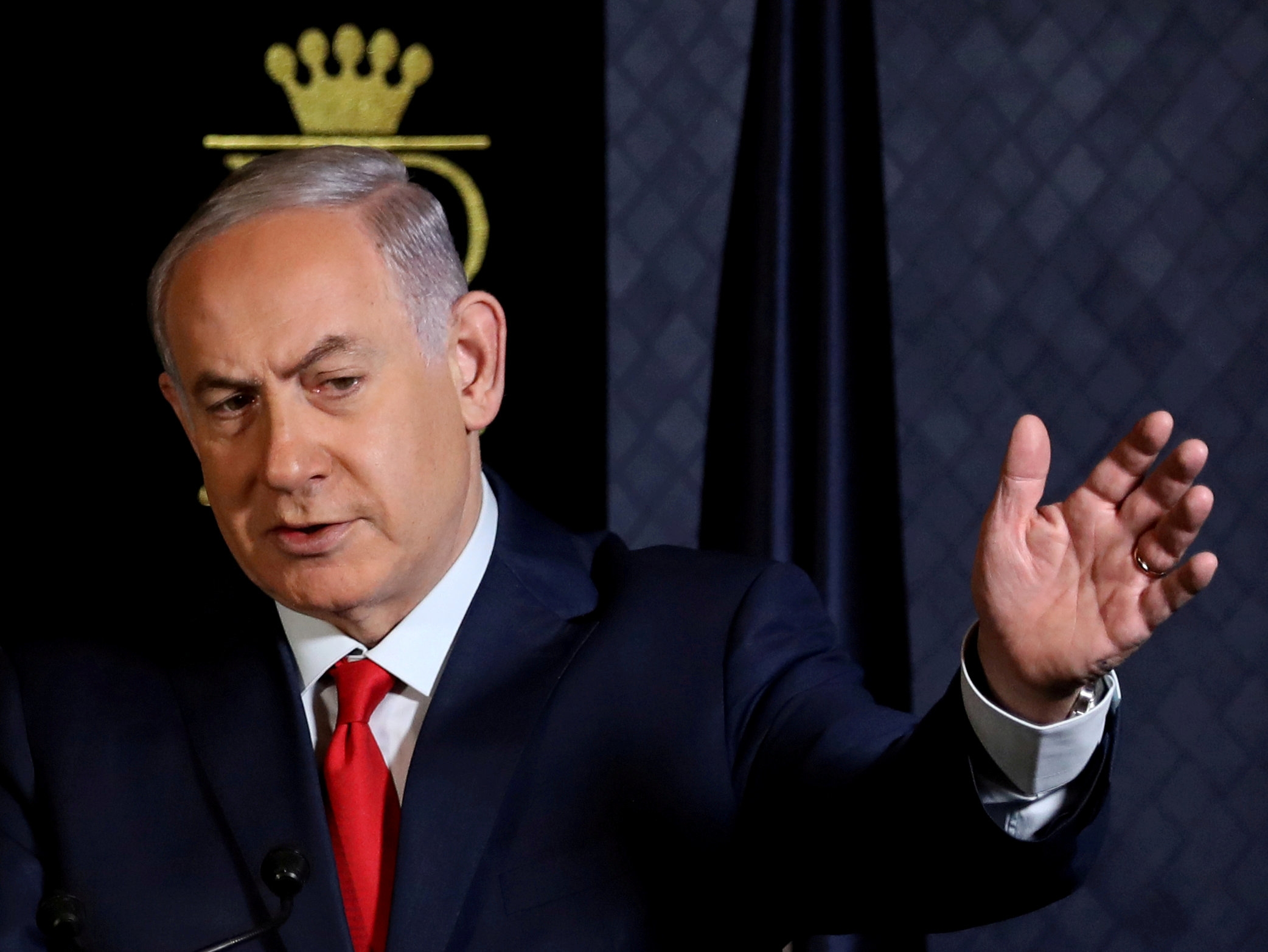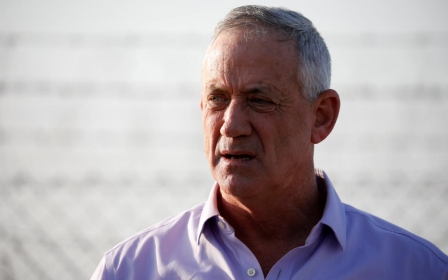Benjamin Netanyahu: Israel's great survivor on the verge of another escape act

He hoped to be Israel’s longest-serving prime minister. Now that dream looks like it could become a reality.
Benjamin Netanyahu is Israeli politics’ great survivor.
He’s been shot in the arm during a military operation, bounced back from a calamitous first term in power and outlasted two US presidents that didn’t agree with him.
And now, set for a record fifth term as Israel's prime minister after he emerged from Tuesday's election in a strong position to form a coalition government, he looks like he’s done it again.
The 69-year-old was the country’s first premier to be born inside the state, to academic parents that were adherents to the conservative Revisionist strain of Zionism that gave birth to his Likud party.
New MEE newsletter: Jerusalem Dispatch
Sign up to get the latest insights and analysis on Israel-Palestine, alongside Turkey Unpacked and other MEE newsletters
In Netanyahu’s early life, his political career never seemed preordained.
As a young soldier he was a commander in the Sayeret Matkal special forces unit, and was injured during a 1972 operation to seize a plane from Palestinian hijackers.
Yet the man commonly known as Bibi appeared keener to forge a lucrative career in the private sector than canvass for votes in Israel’s parliament, the Knesset.
After graduating from university in the United States, where he spent much of his formative years, Netanyahu joined the Boston Consulting Group as an economic consultant, alongside future US Republican presidential candidate Mitt Romney.
Yet despite his clear taste for the trappings of a hefty salary, and fond but complicated feelings towards the US, Netanyahu’s overbearing commitment to the Zionist cause won through.
Beginning his political career as a diplomat in Washington, Netanyahu found fame and prominence as an eloquent spokesman for Israel.
From 1982, when he took the post of deputy chief of mission in Washington, to the Gulf War of 1991, Netanyahu was Israel’s most visible representative in the US.
Appearing again and again on US television as the face of Israeli hasbara – a Hebrew term used for the dissemination of positive information – Netanyahu became a firm favourite on the late-night chat show circuit.
Host Larry King once said of Netanyahu, “on a scale of one to 10 as a great guest, he is an eight. If he had a sense of humour, he’d be a 10.”
As Israel's ambassador to the United Nations between 1984-88, meanwhile, Netanyahu picked up his penchant for visual props and cultivated contacts with wealthy businessmen, including a certain Donald Trump.
Netanyahu heads to the Knesset
Using this profile as a launchpad, Netanyahu entered the Knesset in 1988.
In eight years’ time he was prime minister, beating Shimon Peres in a shock victory, even though Netanyahu had warm, longstanding relations with his opponent.
It was not all smooth sailing, however. Netanyahu came to power on the back of accusations that he had helped incite the assassination of Prime Minister Yitzhak Rabin.
And the apparent emergence of a sex tape in 1993 caused profound embarrassment, as well as domestic trouble at home.
Once in office, Netanyahu failed to turn his astounding victory into political momentum as he struggled to get his ministers on his side.
After three years of alienating his cabinet and several aides, his government collapsed in 1999, and he lost an election to his former Sayeret Matkal commander Ehud Barak.
But 10 years later, following a stint as finance minister championing neoliberal economic policies, Netanyahu was back.
And he’s been in the prime ministerial hot seat ever since.
In that time the peace process with Palestinians has gone into hibernation, inequality has risen, the religious far-right has become ever-more prominent, and two wars have been fought in Gaza, killing thousands.
Meanwhile, Israel’s reputation has plummeted among some western governments and soared in countries ruled by the new wave of strongmen Netanyahu seemed to precipitate.
Yet his taste for the finer things in life, alongside his apparent obsession with his appearance in the media, has led to a series of corruption cases that not only threaten his career, but his freedom too.
Negotiations will commence to form a government. If he gets the nod, this could be his greatest act of escapology so far.
Middle East Eye delivers independent and unrivalled coverage and analysis of the Middle East, North Africa and beyond. To learn more about republishing this content and the associated fees, please fill out this form. More about MEE can be found here.






